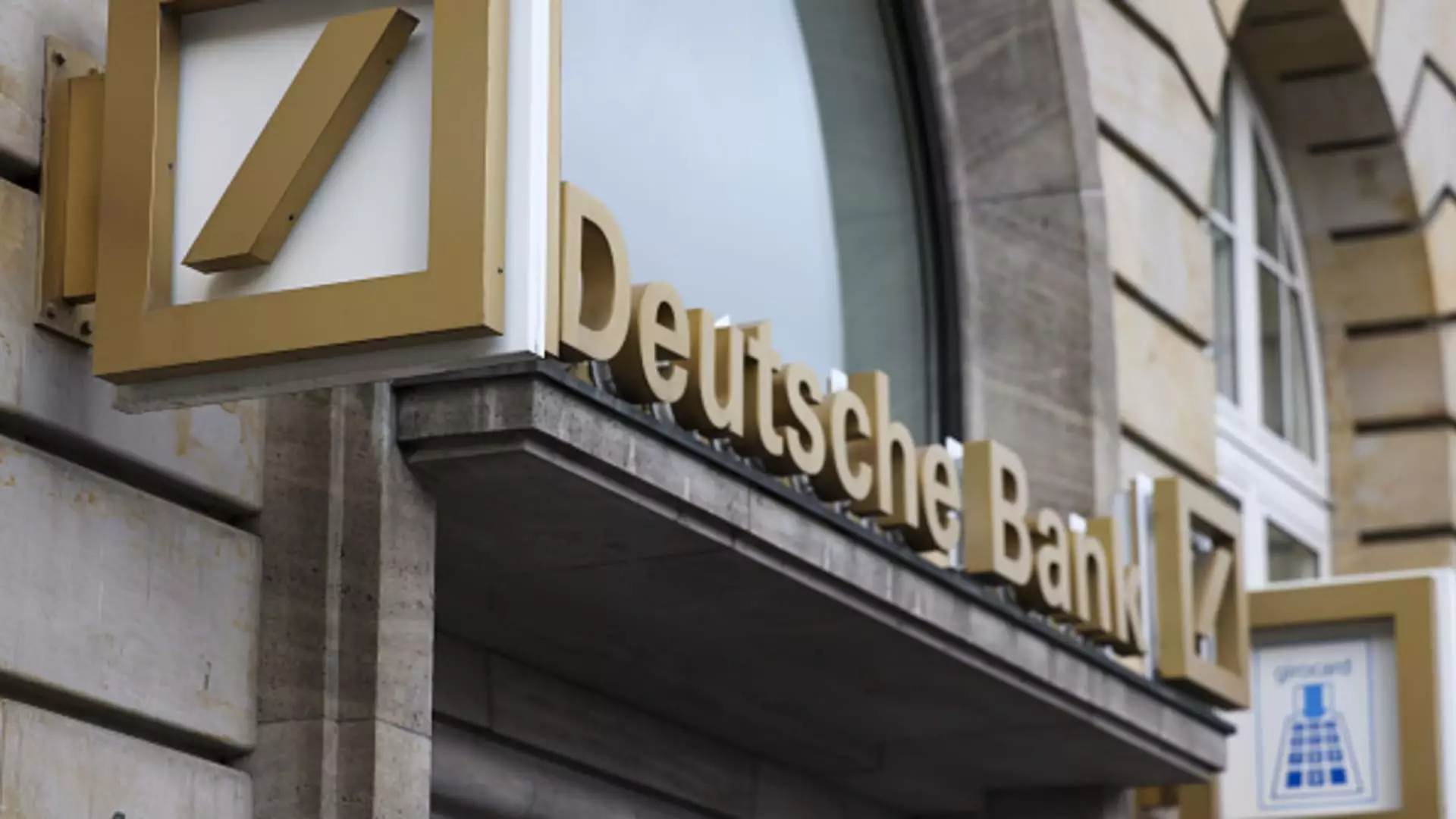Deutsche Bank’s latest financial results for the third quarter have been met with optimism, showcasing a marked recovery after a struggling second quarter. In a striking comeback, the bank reported a net profit of €1.461 billion (approximately $1.58 billion) for the three months leading up to September, significantly exceeding the €1.047 billion forecast made by analysts surveyed by LSEG. This resurgence is noteworthy given that the bank posted a loss of €143 million in Q2, highlighting a pivotal change in its financial trajectory and sending a strong message to stakeholders about its viability and strategic direction.
Total revenues recorded during this period reached €7.5 billion, comfortably surpassing expectations of €7.338 billion, indicating robust demand for the bank’s financial services. An essential component of this upward momentum is the pre-tax profit, which climbed to €2.26 billion, reflecting a substantial 31% increase from the same quarter a year prior. This kind of growth is pivotal, especially in a financial landscape that has seen increased pressure due to fluctuating interest rates and changing market dynamics.
Moreover, Deutsche Bank reported a provision for credit losses totaling €494 million, which is up from €245 million in the previous year’s comparable quarter. Although this spike may raise red flags for some analysts, it indicates a proactive approach by the bank to safeguard against potential defaults amid an uncertain economic environment.
Strengthened Capital Position and Return on Equity Improvements
The Third Quarter results also reveal an increase in the Common Equity Tier 1 (CET1) capital ratio, which measures a bank’s financial strength. The CET1 ratio now stands at 13.8%, up from 13.5% in Q2, demonstrating the bank’s improved solvency and risk-management strategies. Furthermore, the Return on Tangible Equity (ROTE) surged to 10.2%, even more compelling when adjusted for litigation expenses. This is a significant improvement from 7.3% year-over-year and suggests that Deutsche Bank is effectively enhancing profitability.
The resolution of ongoing legal issues—most notably the long-standing lawsuit connected to its acquisition of Postbank—has been beneficial, as a partial release of €440 million in litigation provisions boosted profits. About 60% of the plaintiffs have settled, easing the legal burden on the bank and allowing it to focus on future growth.
One of the key contributors to this recovery is the growth in revenues from the bank’s investment banking sector, which reported earnings of €2.5 billion—a robust 11% increase compared to the prior year’s quarter. This growth signals the effectiveness of Deutsche Bank’s strategy to diversify its service offerings and improve its competitive position relative to U.S. peers, particularly as they adapt to a less favorable interest rate environment.
Asset management also demonstrated significant year-over-year improvement, with net revenues rising to €660 million, again reflecting a healthy growth rate of 11%. This diversification is critical for the lender, especially as the European banking landscape faces increasing scrutiny amid changing economic conditions.
Despite the positive indicators, challenges remain on the horizon. The broader context of the European banking industry pressures institutions to deliver consistent earnings growth while managing costs effectively. Analysts from McKinsey have indicated that for banks to sustain their current profitability levels, they may need to trim expenses at a rate faster than declines in revenue. This means Deutsche Bank must remain vigilant in its cost-saving initiatives, including its recent commitment to reduce its workforce by 3,500 positions by 2025.
This proactive approach is essential, as the performance of European banks is under the microscope, particularly with competitors like Barclays and UBS expected to release their third-quarter earnings shortly. The broader banking sector will be looking to Deutsche Bank’s recent results for insights into emerging trends and potential strategies for navigating the evolving financial landscape.
Deutsche Bank’s Q3 financial results reveal a bank in recovery mode, with strategic adaptations leading to improved profitability metrics and strengthened capital positions. However, the need for ongoing vigilance in cost management and market competitiveness is paramount for sustaining this recovery in the face of both internal and external pressures.

